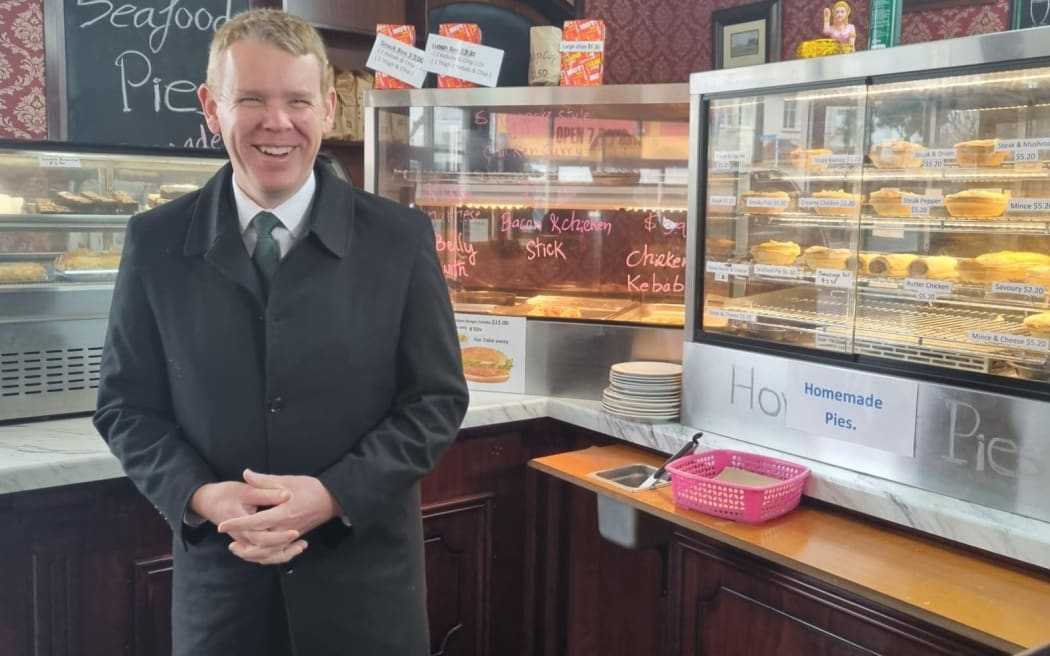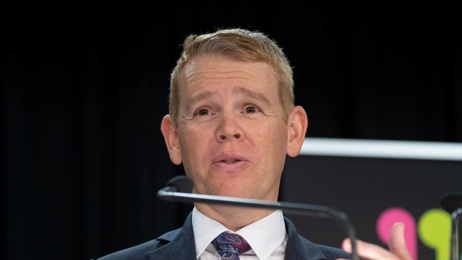
It started with a bang for the Labour Party but ended in a quiet whimper.
New Zealand’s only full majority under MMP was whittled down from 65 MPs to just 34 in three years.
The reasons for this historic decline are numerous and likely started not long after the party’s mammoth 2020 victory.
But the beginning of the end for the 53rd Parliament started with the now famous words: “I no longer have enough in the tank.”
Jacinda Ardern shocked the Nation, and the world, by resigning as Prime Minister.
Labour’s dreams of winning a third term looked in doubt.
But on a sunny January day in Wellington the leadership baton was handed to Chris Hipkins – a humble boy from the Hutt, who promised he could keep Labour’s re-election chances alive.
That sunny day quickly turned gloomy, then outright stormy as Auckland was hit by a severe weather event – the East Coast was hit soon after.
Hipkins’ honeymoon period coinciding with a national disaster did wonders for Labour’s popularity.
The last 1News poll conducted while Jacinda Ardern was in office had the party at 33 percent in late November 2022.
By January 27 – Chris Hipkins’ Labour party was at 38 percent.
He had a spring in his step as announced his “bread and butter” approach to governance, heaping unpopular policy into the shredder.
The Coke-zero chugging, sausage roll-eating boy from the Hutt had seemingly charmed the nation.
Then came the troubles.
Ministers started dropping like flies and the Opposition – shellshocked that the sudden departure of the Patron Saint of the polls Jacinda Ardern, didn’t collapse Labour’s polling – found its groove.
Only Hipkins truly knows the exact moment he personally conceded that Labour was going to lose the election.

But the night he got a phone call from his Chief of Staff, telling him his Justice Minister had been arrested for drunk driving might be a safe bet.
Kiri Allan was forced to resign as a Minister – making her the fourth Minister to leave their post during Hipkins’ leadership (Stuart Nash, Meka Whaitiri and Michael Wood were also fired, resigned or left).
To make matters worse, Revenue Minister David Parker threw his toys and resigned as Minister, after Hipkins decided to rule out campaigning on a wealth tax.
Meanwhile, one of the most important pre-election barometers was throwing up major red flags for the party.
In July, a Taxpayers’ Union Curia Poll showed 64.5 percent of people thought New Zealand was on the wrong track.
By the time the election campaign began, Labour was facing two significant headwinds: A perception Hipkins’ Cabinet was falling apart and a majority of Kiwis thinking the country's going in the wrong direction.
Chippy's charm had well and truly warn off.
Labour needed a major circuit breaker in the form of significant and meaningful election policy.
And at a stuffy church hall in Wellington’s Lower Hutt, armed with boxes of apples for party faithful to snack on after they listen to Hipkins keynote address, Labour announced it would remove GST from fresh and frozen fruit and vegetables.
Despite jokes from Finance spokesman Grant Robertson that he’d had his “road to Damascus” moment, the bitter taste of his previous aversion to the very policy he was now advocating lingered like a bad smell.
Economists slammed the scheme as an ineffective, non-targeted mess.
So bad was the reaction, it barely warranted much of a mention by the time Hipkins hit the campaign trail.
And by that time, Labour was polling below 30 percent and dropping.
If the polls weren't enough to show Labour was destined for the opposition benches, Hipkins’ lacklustre campaign efforts sealed the deal.
National leader Chris Luxon was visiting goat farms, jumping atop tractors, gate-crashing boozy lunches at viaduct restaurants and even dressing up as a pirate on the campaign trail.
Hipkins, meanwhile, was yo-yoing between bland businesses, drab dental clinics and lifeless rooms.
Even he admitted his campaign had got off to a slow start and after an impressive second leaders’ debate, Hipkins promised he’d found his mojo.
And he did, for a day or two. Before being struck down by an old foe – Covid-19.
Any momentum Labour had gathered was stopped in its tracks, giving Luxon and National a week’s free run.
Labour was getting desperate.
After his bout of isolation, Hipkins started almost every press conference by attacking National, or its would-be coalition partners Act and New Zealand First.
The third and final leaders’ debate was the final nail in the coffin for Hipkins.
“People in glass houses shouldn’t be throwing stones. None of my MPs beat people up with a bed leg,” Hipkins spat at Luxon, after the National leader brought up his string of Ministerial resignations.
The comment – a reference to National MP Sam Uffindell’s admitted assault on a student when the pair were in high school (he denies the use of a bed leg) -- was a scrappy, desperate and dirty line that didn’t sit well with many voters.
At that moment, the public saw not a Prime Minister, but an Opposition leader.
And just days later, that’s what he became.
Take your Radio, Podcasts and Music with you









